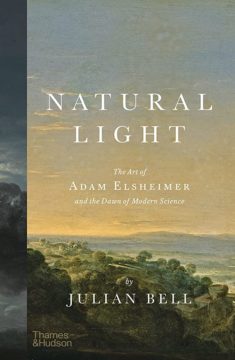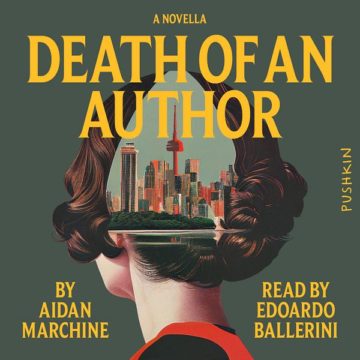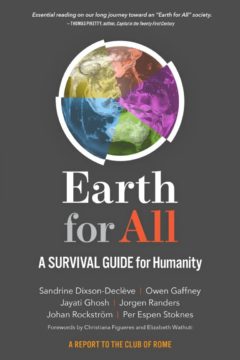Tim Requarth in Slate:
 In 1991 an academic debate spilled out of ivory towers and into the popular imagination. That year, Serge Renaud, a celebrated and charismatic alcohol researcher at the French National Institute for Health and Medical Research—who also hailed from a winemaking family in Bordeaux—made a fateful appearance on 60 Minutes. Asked why the French had lower rates of cardiovascular disease than Americans did, even though people in both countries consumed high-fat diets, Renaud replied, without missing a beat, “The consumption of alcohol.” Renaud suspected that the so-called French paradox could be explained by the red wine at French dinner tables.
In 1991 an academic debate spilled out of ivory towers and into the popular imagination. That year, Serge Renaud, a celebrated and charismatic alcohol researcher at the French National Institute for Health and Medical Research—who also hailed from a winemaking family in Bordeaux—made a fateful appearance on 60 Minutes. Asked why the French had lower rates of cardiovascular disease than Americans did, even though people in both countries consumed high-fat diets, Renaud replied, without missing a beat, “The consumption of alcohol.” Renaud suspected that the so-called French paradox could be explained by the red wine at French dinner tables.
The French paradox quickly found a receptive audience. The day after the episode aired, according to an account in the food magazine the Valley Table, all U.S. airlines ran out of red wine. For the next month, red wine sales in the U.S. spiked by 44 percent. When the show was re-aired in 1992, sales spiked again, by 49 percent, and stayed elevated for years.
More here.

 Wearing the white robes that are used to dress the dead in Japan, I bow my head deeply as drums are beaten and conch shells are blown – reminders that the first rite of my yamabushi ascetic training is beginning. My funeral is starting. Along with a small group of uninitiated who are also preparing to ‘die’, I start a symbolic pilgrimage into the afterlife, descending the slopes of Mount Haguro, a cedar-covered mountain in Japan’s northern Yamagata Prefecture.
Wearing the white robes that are used to dress the dead in Japan, I bow my head deeply as drums are beaten and conch shells are blown – reminders that the first rite of my yamabushi ascetic training is beginning. My funeral is starting. Along with a small group of uninitiated who are also preparing to ‘die’, I start a symbolic pilgrimage into the afterlife, descending the slopes of Mount Haguro, a cedar-covered mountain in Japan’s northern Yamagata Prefecture. In the summer of 2021, Canada’s all-time temperature record was smashed by almost 5℃. Its new record of 49.6℃ is hotter than anything ever recorded in Spain, Turkey or indeed anywhere in Europe.
In the summer of 2021, Canada’s all-time temperature record was smashed by almost 5℃. Its new record of 49.6℃ is hotter than anything ever recorded in Spain, Turkey or indeed anywhere in Europe. IT WAS HIGH TIME
IT WAS HIGH TIME Kent Puckett in Public Books:
Kent Puckett in Public Books: Tim Sahay and Kate Mackenzie in Polycrisis:
Tim Sahay and Kate Mackenzie in Polycrisis: Yakov Feygin in Building a Ruin:
Yakov Feygin in Building a Ruin: A member of the pea family, M. pudica is a small plant with tiny leaflets paired along the length of each stem and pretty lavender-pink globular flowers. The leaves give it a fernlike, feminine look, although it is also armed with thorns to ward off attacks. It’s native to Central and South America but has spread throughout the tropics partly because of its popularity as a novel ornamental that exhibits a fascinating behavior: if you touch a single leaf, the plant will swiftly fold up all its leaves before your eyes. Only a soft touch is required to bring on this collapse; after a while, you can also watch as the wilted-appearing mimosa sets about righting itself and reopening its leaves. You may have discovered the mimosa’s animal-like trick in an arboretum or store where the plants are sometimes displayed or sold. The rapid response to being touched is another defensive tactic—it startles most insects, as it does naive humans.
A member of the pea family, M. pudica is a small plant with tiny leaflets paired along the length of each stem and pretty lavender-pink globular flowers. The leaves give it a fernlike, feminine look, although it is also armed with thorns to ward off attacks. It’s native to Central and South America but has spread throughout the tropics partly because of its popularity as a novel ornamental that exhibits a fascinating behavior: if you touch a single leaf, the plant will swiftly fold up all its leaves before your eyes. Only a soft touch is required to bring on this collapse; after a while, you can also watch as the wilted-appearing mimosa sets about righting itself and reopening its leaves. You may have discovered the mimosa’s animal-like trick in an arboretum or store where the plants are sometimes displayed or sold. The rapid response to being touched is another defensive tactic—it startles most insects, as it does naive humans. Fatimah Asghar is the first recipient of the Carol Shields prize for fiction for their debut novel When We Were Sisters. The award was announced Thursday evening at Parnassus Books in Nashville, Tenn. They will receive $150,000 as well as a writing residency at Fogo Island Inn in Newfoundland and Labrador.
Fatimah Asghar is the first recipient of the Carol Shields prize for fiction for their debut novel When We Were Sisters. The award was announced Thursday evening at Parnassus Books in Nashville, Tenn. They will receive $150,000 as well as a writing residency at Fogo Island Inn in Newfoundland and Labrador. A
A Now comes a new novella, “Death of an Author,” a murder mystery published under the pseudonym Aidan Marchine. It’s the work of the novelist and journalist Stephen Marche, who coaxed the story from three programs,
Now comes a new novella, “Death of an Author,” a murder mystery published under the pseudonym Aidan Marchine. It’s the work of the novelist and journalist Stephen Marche, who coaxed the story from three programs,  During his response, Snoop described how conversing with a large language model (such as
During his response, Snoop described how conversing with a large language model (such as  The phrase « it’s not too late », for me, brings an artificial smile. I stumble onto it as I walk into a bookstore and see the flashy Carbon Almanac (2022) promoted at the entrance, one of many such books to appear in the last, late year. It shouts from the cover: « It’s not too late. » The foreword was written by Seth Godin, a marketing guru out of the dot-com avantgarde. What will save us is « the hope that comes from realizing that it’s not too late. » The refrain is a staple of the genre. Another entry, a new report from the Club of Rome entitled Earth for All: A Survival Guide for Humanity, offers a kindred burst of optimism about the future against the backdrop of a bleak present. Greater planetary health and social well-being are within reach. The authors will « show you that this is indeed fully possible ». Meanwhile the heavy-weight United Nations Intergovernmental Panel on Climate Change (IPCC), released two punchy reports of its own in 2022. They hammered the message that countries’ pledges to cut emissions fall far below climate change targets, and that the impact of climate change is already devastating for many parts of humanity, the ecosystem, and for the biodiversity that now suffers a mass extinction.
The phrase « it’s not too late », for me, brings an artificial smile. I stumble onto it as I walk into a bookstore and see the flashy Carbon Almanac (2022) promoted at the entrance, one of many such books to appear in the last, late year. It shouts from the cover: « It’s not too late. » The foreword was written by Seth Godin, a marketing guru out of the dot-com avantgarde. What will save us is « the hope that comes from realizing that it’s not too late. » The refrain is a staple of the genre. Another entry, a new report from the Club of Rome entitled Earth for All: A Survival Guide for Humanity, offers a kindred burst of optimism about the future against the backdrop of a bleak present. Greater planetary health and social well-being are within reach. The authors will « show you that this is indeed fully possible ». Meanwhile the heavy-weight United Nations Intergovernmental Panel on Climate Change (IPCC), released two punchy reports of its own in 2022. They hammered the message that countries’ pledges to cut emissions fall far below climate change targets, and that the impact of climate change is already devastating for many parts of humanity, the ecosystem, and for the biodiversity that now suffers a mass extinction.